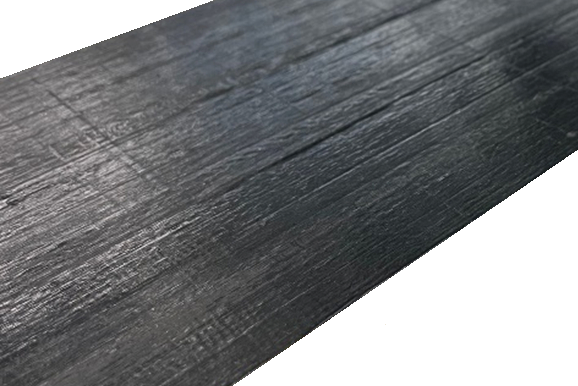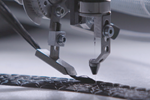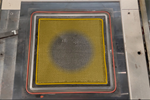Nexam Chemicals joins TAPE Extreme consortium for temperature-resistant composite development
Chemistry, polymers and resins competency will guide Nexam’s R&D activities for novel dry UD tapes to replace metals in jet engines.

Photo Credit: Composite Centre, AMRC
Nexam Chemical (Lomma, Sweden) has been selected as a key partner in the “TAPE Extreme” project financed by Innovate UK, targeting development of advanced temperature-resistant composites for the U.K. aerospace sector. Nexam Chemical adds competencies within chemistry, polymers and resins to the consortium, and has been awarded a £100K grant with the objective of developing novel materials that can replace metals in jet engines.
Dubbed “Advanced Thermoformable Cross-linking Resin Unidirectional Tapes,” the project consists of a consortium of commercial players within composites and aerospace sectors representing the whole value chain, in partnership with the University of Sheffield (U.K.). TAPE Extreme’s main objective is to drive replacement of metals like titanium and other alloys in jet engines with novel high-temperature resistant composites, leading to lighter components and resulting in fuel savings. The technology is primarily intended for civil aviation applications, where the largest commercial potential lies. The project is a part of Innovate UK, which supports local OEMs such as Boeing, Rolls-Royce and GKN Aerospace.
“The aim is to develop dry unidirectional tape without solvents,” Christer Svanberg, CTO of Nexam Chemical, says. “It is a recognition of our market-leading position and technical expertise in design and synthesis of polyimide resins and so-called ‘end-cappers’ for polyimides.”
According to Ronnie Törnqvist, CEO of Nexam Chemical, the company already has a solid footprint within high-temperature composites in the U.S., primarily aimed at military applications.
Related Content
-
A new era for ceramic matrix composites
CMC is expanding, with new fiber production in Europe, faster processes and higher temperature materials enabling applications for industry, hypersonics and New Space.
-
Plant tour: Joby Aviation, Marina, Calif., U.S.
As the advanced air mobility market begins to take shape, market leader Joby Aviation works to industrialize composites manufacturing for its first-generation, composites-intensive, all-electric air taxi.
-
Combining multifunctional thermoplastic composites, additive manufacturing for next-gen airframe structures
The DOMMINIO project combines AFP with 3D printed gyroid cores, embedded SHM sensors and smart materials for induction-driven disassembly of parts at end of life.












